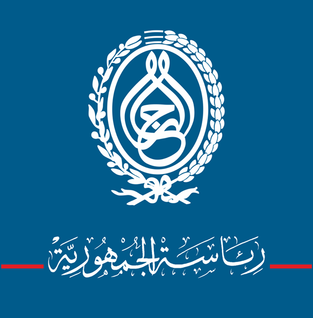
Tunisia, officially the Republic of Tunisia, is the northernmost country in Africa. It is a part of the Maghreb region of North Africa, and is bordered by Algeria to the west and southwest, Libya to the southeast, and the Mediterranean Sea to the north and east; covering 163,610 km2 (63,170 sq mi), with a population of 11 million. It contains the eastern end of the Atlas Mountains and the northern reaches of the Sahara desert, with much of its remaining territory arable land. Its 1,300 km (810 mi) of coastline include the African conjunction of the western and eastern parts of the Mediterranean Basin. Tunisia is home to Africa's northernmost point, Cape Angela; and its capital and largest city is Tunis, located on its northeastern coast, which lends the country its name.

The politics of Tunisia takes place within the framework of a unitary semi-presidential representative democratic republic, with a President serving as head of state, Prime Minister as head of government, a unicameral legislature and a court system influenced by French civil law. Between 1956 and 2011, Tunisia operated as a de facto one-party state, with politics dominated by the secular Constitutional Democratic Rally (RCD) under former Presidents Habib Bourguiba and then Zine el Abidine Ben Ali. However, in 2011 a national uprising led to the ousting of the President and the dismantling of the RCD, paving the way for a multi-party democracy. October 2014 saw the first democratic parliamentary elections since the 2011 revolution, resulting in a win by the secularist Nidaa Tounes party with 85 seats in the 217-member assembly.

Zine El Abidine Ben Ali, commonly known as Ben Ali or Ezzine, was a Tunisian politician who was the second President of Tunisia from 1987 until his fall in 2011 after the revolution of Tunisia. Ben Ali was appointed Prime Minister in October 1987. He assumed the Presidency on 7 November 1987 in a bloodless coup d'état that ousted President Habib Bourguiba by declaring him incompetent. Ben Ali was subsequently reelected with enormous majorities, each time exceeding 90% of the vote; his final re-election coming on 25 October 2009. Ben Ali was the penultimate surviving leader deposed in the Arab Spring who was survived by Egypt's Hosni Mubarak, the latter dying in February 2020.

Mohamed Ghannouchi is a Tunisian politician who was Prime Minister of Tunisia from 1999 to 2011. Regarded as a technocrat, Ghannouchi was a long-standing figure in the Tunisian government under President Zine El Abidine Ben Ali. He also served as the Acting President of Tunisia from 14 January 2011 to 15 January 2011, holding the powers and duties of the office nominally for the absent President Zine El Abidine Ben Ali, who had fled the country due to the 2011 revolution. On 15 January 2011 the presidency was declared vacant by the Constitutional Court and Ben Ali's term was officially terminated, leading to Speaker of Parliament Fouad Mebazaa taking office as Acting President. Ghannouchi stayed on as Prime Minister for six more weeks after Ben Ali's overthrow before himself resigning.

The Ettajdid Movement, also referred to simply as Ettajdid, was a centre-left secularist political party in Tunisia, active from 1993 to 2012.

The president of Tunisia, formally known as the president of the Republic of Tunisia, is the head of state of Tunisia. Tunisia is a semi-presidential republic, whereby the president is the head of state and the prime minister is head of government. Under Article 77 of the Constitution of Tunisia, the president is also the commander-in-chief of the Tunisian Armed Forces. The current president is Kais Saied who held this position since 23 October 2019 following the death of Beji Caid Essebsi on 25 July 2019.

Following the 2011 Tunisian revolution, elections in Tunisia for the president and the unicameral Assembly of the Representatives of the People are scheduled to be held every five years. The assembly can be dissolved before finishing a full term.

The prime minister of Tunisia is the head of government of Tunisia. The prime minister directs the executive branch along with the president, and, together with the prime minister's cabinet, is accountable to the Assembly of the Representatives of the People, to the prime minister's political party and, ultimately, to the electorate for the policies and actions of the executive and the legislature.

Kamel Morjane, also spelled Kemal Mourjan, is a Tunisian politician and diplomat who served as the Minister of Defense from 2005 to 2010 and as Minister of Foreign Affairs from 2010 to 2011. After the Tunisian Revolution, he was designated as the Minister of the Public Service.
Fraj ben Abdallah Bnouni is a Tunisian footballer. His position is a midfielder. He measures 1.76 metres, and weighs 73 kilograms.

The Tunisian Revolution, also called the Jasmine Revolution, was an intensive 28-day campaign of civil resistance. It included a series of street demonstrations which took place in Tunisia, and led to the ousting of longtime president Zine El Abidine Ben Ali in January 2011. It eventually led to a thorough democratisation of the country and to free and democratic elections.

The Democratic Forum for Labour and Liberties, also referred to as Ettakatol or by its French acronym FDTL, is a social democratic political party in Tunisia. It was founded on 9 April 1994 and officially recognized on 25 October 2002. Its founder and Secretary-General is the radiologist Mustapha Ben Jafar.

The Free Patriotic Union, known by its French acronym UPL, is a political party in Tunisia.

The first cabinet of Tunisian Head of Government Hamadi Jebali was presented on 20 December 2011. Jebali has been appointed by interim President Moncef Marzouki, who had been elected by the National Constituent Assembly, a body constituted to draft a new constitution after the Tunisian Revolution and the fall of former President Zine El Abidine Ben Ali in Spring 2011. It took office on 24 December 2011. The three parties in the "Troika" coalition are the Islamist Ennahda Movement, the centre-left secularist Congress for the Republic (CPR), and the social democratic Democratic Forum for Labour and Liberties (Ettakatol).

Ali Laarayedh is a Tunisian politician who was Prime Minister of Tunisia from 2013 to 2014. Previously he served in the government as the Minister of the Interior from 2011 to 2013. Following the resignation of Prime Minister Hamadi Jebali, Laarayedh was designated as Prime Minister in February 2013. He is a member of the Ennahda Movement.

Samia Hamouda Abbou is a Tunisian lawyer and politician. On 27 December 2011, she replaced Moncef Marzouki in the Constituent Assembly after he assumed office as the interim President of Tunisia.

Yassine Brahim is a Tunisian engineer, manager and politician. Leader of the secular liberal Afek Tounes party, he was appointed Minister of Development, Investment and International Cooperation in February 2015.

Najma Kousri is a Tunisian feminist and LGBT-rights activist. Kousri is a co-founder of the #EnaZeda movement and a co-ordinator of the Tunisian Association of Democratic Women. She is a campaigner for LGBT rights and her photographic project documenting the lives of same-sex couples went viral in 2017.
Fraj Dhouibi is a Tunisian judoka. He is a two-time medalist at the African Games. He also won nine medals at the African Judo Championships, including four gold medals.
Events in the year 2021 in Tunisia.















